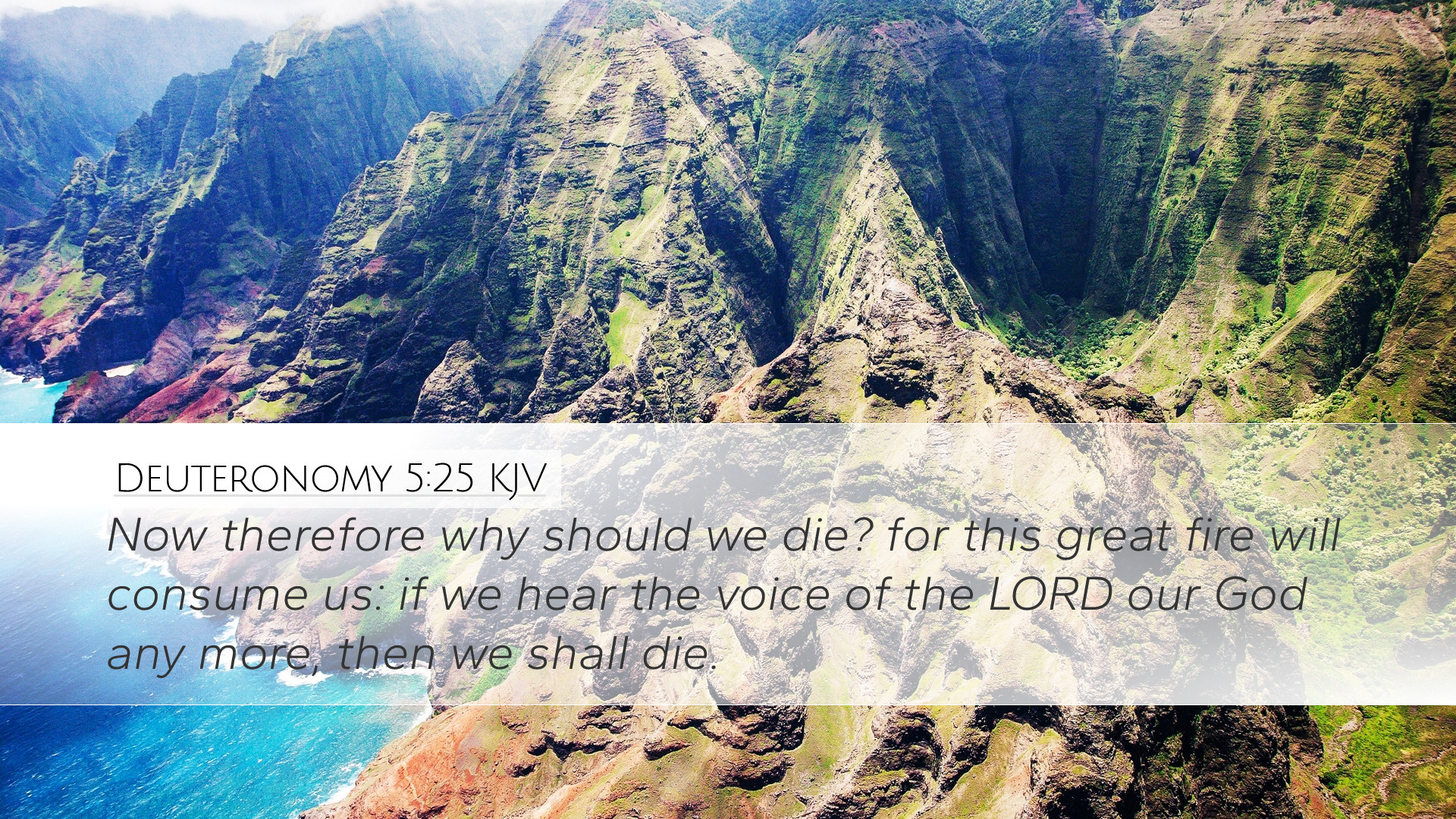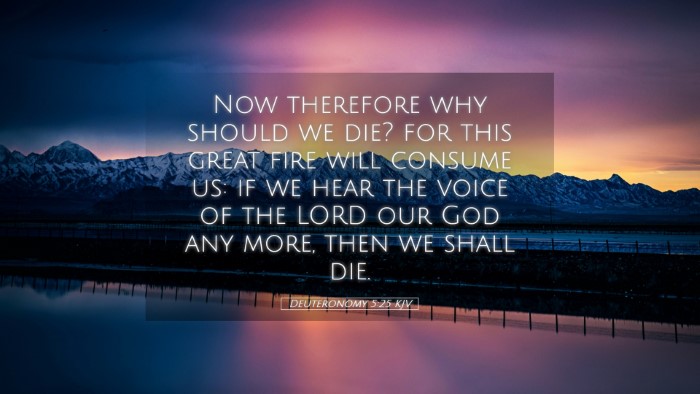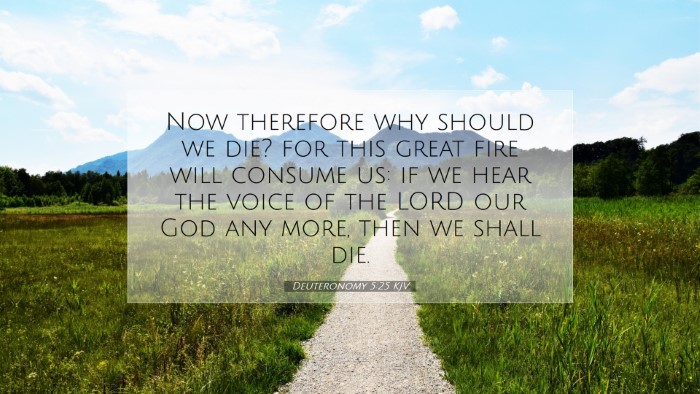Context and Meaning
Deuteronomy 5:25 captures the profound fear of the Israelites in the face of God's overwhelming presence as He reveals His laws. This verse highlights—through the voice of the people—the emotional and spiritual responses to the divine encounter at Sinai. The terror they experience leads them to question their ability to survive such a divine revelation, acknowledging the formidable nature of God’s holiness and the gravity of His words.
Historical Background
The context of this verse lies in the broader narrative of the Exodus, where God has liberated Israel from Egyptian bondage and is establishing a covenant relationship with them. The Israelites are reminded of their past experiences at the mountain, where they witnessed God's majesty and heard His voice. This encounter is pivotal in shaping their identity as God's chosen people who are to live according to His commandments.
Insights from Public Domain Commentaries
-
Matthew Henry:
Henry emphasizes the Israelites' awareness of their own sinfulness and God's consuming holiness. He notes that their fear is not unwarranted; indeed, they realize that the voice of God is not to be taken lightly. Just as fire consumes, so does God's righteousness burn away anything unworthy.
-
Albert Barnes:
Barnes comments on the notion of the “great fire” as a symbol of God’s glorious presence. He points out that this verse not only reflects their fear but illustrates a fundamental truth about divine holiness; humans, in their sinful state, face a dire consequence when confronted with God’s purity. The trembling hearts of the people underline the seriousness of disobedience.
-
Adam Clarke:
Clarke provides a detailed analysis of the text's implications. He posits that the Israelites are expressing the belief that continued exposure to God’s voice—without mediation—would lead to their death. This highlights a key theological theme: the need for an intermediary. Clarke points to the eventual role of Moses as that mediator who can bear the law and maintain a relationship with God, facilitating the people's approach to the divine.
Theological Implications
This verse serves as a reminder of the transcendence of God and the frailty of human beings. The need for mediation between God and man is a significant theme in Scripture, culminating in the ultimate mediation by Jesus Christ. The fear of the Israelites is a reflection of the necessary reverence that all believers must heed in approaching a holy God.
Applications for Today
For pastors, students, and scholars, Deuteronomy 5:25 invites a deep examination of the nature of God’s holiness and its implications for Christian living. Here are some applications to consider:
- Awareness of God’s Holiness: Just as the Israelites were reminded of God’s power, contemporary believers must cultivate an awareness of God's holiness in their lives and worship.
- Importance of Mediation: Understanding the role of Jesus as mediator encourages Christians to approach God with both confidence and reverence, appreciating the sacrifice made for reconciliation.
- Fear of the Lord: Developing a healthy fear of the Lord can transform how believers respond to His commandments and life’s challenges, fostering both humility and obedience.
Conclusion
Deuteronomy 5:25 encapsulates the tension between divine holiness and human frailty. It speaks to the essence of spiritual health found in recognition of God’s greatness and our need for His grace. The reflections from esteemed commentators provide a rich framework for understanding this fear and its necessary place within the life of faith.


